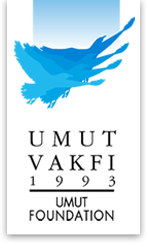Criminal Law Reform
May 2001
840 Page
We present you the book, ‘CRIMINAL LAW REFORM’ which was printed in 2001 by our foundation. We consider it to be a lasting work in participating in the formation of a democratic state of law and in helping individuals to understand and adopt the rule of law. The new Turkish Criminal Law Draft and the Criminal Procedure Law Draft have been prepared by an organization committee of Prof. Dr. Feridun Yenisey from Marmara University Law Faculty, Prof. Dr. h.c. mult Hans-Joachim Hirsch and Prof. Dr. h.c. Friedrich - Christian Schroeder who have opened the law drafts into discussion to internationally known American, German and Turkish scholars. İstanbul Goethe Institute, Heinrich Böll Foundation, University of Kansas School of Law and Yeditepe University Law Faculty also supported the group and participated in the organization. ‘Criminal Law Reform’, in which the Criminal Procedure Law Draft is discussed, we believe will be a useful source to jurists, scholars and members of the parliamentary committee.
| Preamble |
| Nazire Dedeman The aim of UMUT, Honourable Leaders Foundation is: ’’to educate the youth, who are the assurance of our future, as individuals who contribute to the growth of our country and who are beneficial to humanity, by helping them acquire the skills and personality features in being a leader following the footsteps of Atatürk. To make individuals internalize the superiority of law and ensure that they contribute to its practice. To encourage them to peacefully solve disagreements in accordance with our leader Atatürks understanding of ’’Peace at Home, Peace in the World’’. Within this framework the purpose is to teach and enable them to acquire negotiation skills (and skills needed to ensure peace and its development).’’ We strive to fulfil our goal and to broaden our accomplishments. |
| Contents |
| First Section CRIMINAL PROCEDURE LAW REFORM Opening Speeches 2. Motor Vehicle Stops and the Fourth Amendment 2a. Motor Vehicle Stops and the American Law, the Fourth Amendment 2b. The Infrastructure of State and Federal Criminal Justice 3. Motor Vehicle Stops and Search and the Constitution 4. Der Schutz der Zeugen und die Rechte des Verletzten 4a. The Protection of the Rights and Witnesses of the Victim 5. The Protection of the Rights and Witnesses of the Victim 5a. Discussions for the first session 6. Structural Analysis of the Justice of Punishment 7 .Entwurf einer türkischen StrafprozeBordnung von 1999 7a. 1999 Turkish Criminal Procedure Law Draft 8. Shortened legal procedures 9. Confessions and the Right to Counsel: Reflections on Recent Changes in Turkish Criminal Proceure 10. Right to Knowledge and Defence 10a.Discussions following the speeches of Schroeder, 11. A Comparative Look at the Admissibility of Scientific 11a. A Comparative Look at the Admissibility of Scientific 12. Scientific Evidence 13. Vorentwurf einer türkischen StrafprozeBordnung von 1999, Das Beweisrecht, Insbesondere die Beweisverbote 14. Evidence Prohibitions in the Draft and Criminal Law Procedure 15. A Critique of Guideline Sentencing 15a. A Critique of Guideline Sentencing 16. Determination of Punishment 16a. Discussions following the Speeches of Read, Atasoy, Rogall, 17. The Course of Law: Comparison of the Turkish and German System 18. Evaluation of the 1999 Preliminary Draft of the Turkish Procedural Law in terms of the Course of Law 19. White Collar Investigations & The Rico Statute International Workshop on Criminal Law Reform 19a. White Collar Investigations & The Rico Statute 20. The Determining of and Gathering Evidence against Benefit-Oriented Organised Crime 20a. Discussions following the speeches of Meurer, Howard, Yarsuvat ve Hamide Zafer Second Section 21. The Dogmatic Side of The 1975 German Reform when Observed from Today’s Viewpoint and The 1997 Turkish Draft 22. Main Properties of the chapter on the General Provisions of the Turkish Criminal Law Draft 23. Entwurf eines türkischen Strargesetzbuchs Teilnahme 24. Evaluation of 1997 Turkish Criminal Law Draft with respect to Complicity 24a. Discussions Following the speeches of Hirsch, Bayraktar, Schroeder, Erdem and Özbek 25. Comparative System Analysis of Turkish Prisons and the Latest Developments Concerning Execution Law 25a. The Legal Basis of the Rights of Detainees and Convicts 25b. Reform in Institutions Where the Punishment ’Deprivation of Freedom’ is Administered when the Child is Convicted 25c. The Problems of Institutions that are Responsible from the Execution of Punishments and Activities Carried out by the Ministry of Justice 25d. European Committee on Crime Problems (CDPC) Draft Recommendation No. R(99) ...concerning prison overcrowding and prison population inflation 25e. European Committee 26. Strafbarkeit von juristischen Personen und Personenvereinigungen 26a. Kişi Birlikleri ve Tüzel Kişilerin Cezalandırabilirliği 27 .Tüzel Kişilerin Ceza Sorumluluğu 28. Bayraktar, Hirsch ve Erdem’in Konuşmasından Sonra Yapılan Tartışmalar 29. Din, Vicdan ve Kanaat Özgürlüğü 30. Din ve Vicdan Özğürlüğü ve 1997 Tarihli Türk Ceza Kanunu Tasarısı 30a. Zusammenfassung: Religions-und Gewissensfreiheit im Entwurf des tStGB vom 1997 31. Reform der Körperverletzungsregelungen 31a. Müessir Fiil Hükümlerinin Reformu 31b. Discussion Section 32. Criminal Assault and Battery in the Criminal Law 33. Changing Paradigms in American Murder Law 33a. Murder 34. Evaluation of Provisions Regarding Murder in the Turkish Criminal Law Draft 35. Einige Betrachtungen zu den Staatsschutzdelikten im Entwurf eines Türkischen Strafgesetzbuchs 35a. Crimes Against the State 36. Devletin Güvenliğini ilgilendiren Suçlar 36a. Discussion Section 37. The Death Penalty in America 37a. The Death Penalty in America 38. Death Penalty 39. Crimes and Deportation 40. Crimes and Refugees 40a. Discussion Session 41. American Responses to the Problem of Repeat Sex Ofenders 42. The Classification of Intentional Homicides: Description. 43. The Meaning of ’’Defect’’ in Products Liability: Lessons From the American Experience 44. Commercial Arbitration and the New York Convention as Applied in the United States 45. The Asian Economic Crisis: Implications for Turkey, Europe, and the World 46. Efficiency of the Turkish Criminal Justice System Before 1991 List of of those who participated in the International Workshop on the Criminal Law Reform (held on 20-23 October 1999) |
